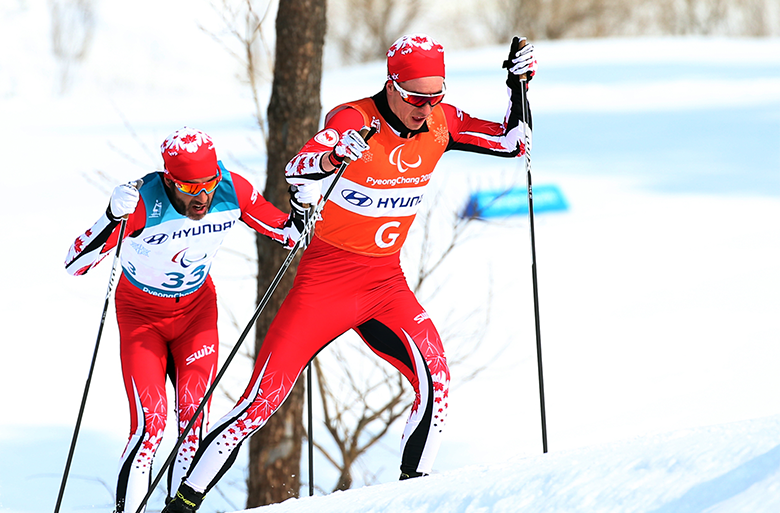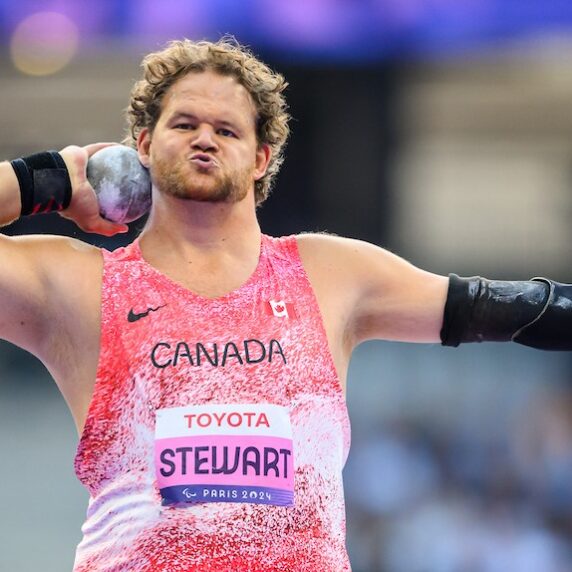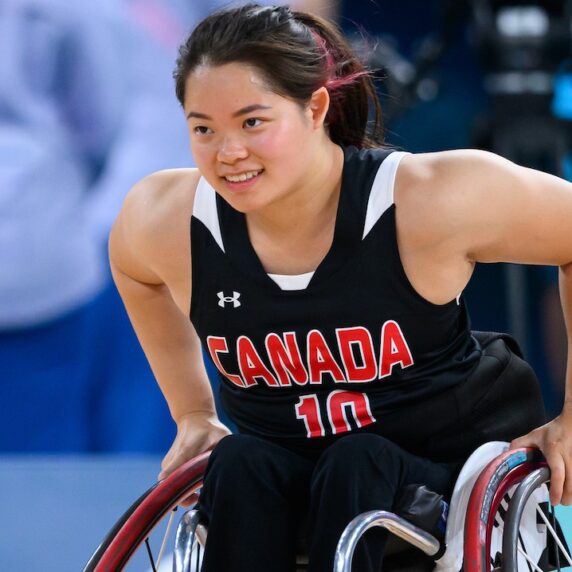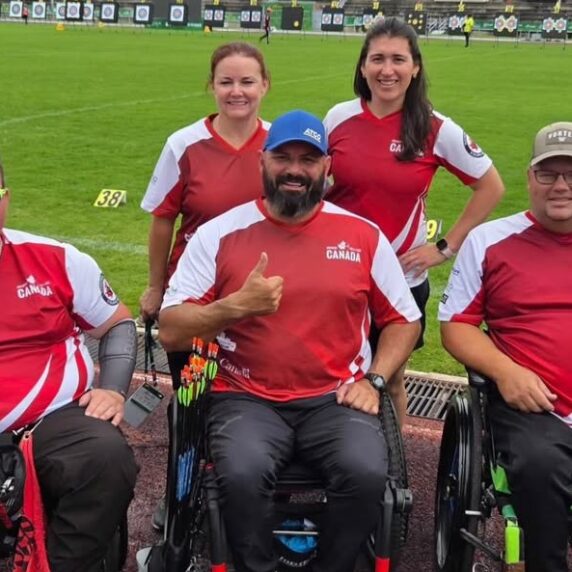Brian McKeever Becomes Canada’s Most Decorated Winter Paralympian
Brian McKeever stamped his name in the record books as Canada’s most decorated Paralympic winter athlete

Brian McKeever stamped his name in the record books as Canada’s most decorated Paralympic winter athlete after winning his 14th career medal, 11th gold, in Monday’s 20-kilometre visually impaired cross-country ski race in PyeongChang, Korea.
Recognizing the conditions for the skate-ski marathon would be nothing short of a challenge with warm, windy and slushy snow, the Canadian squad utilized a two-guide strategy that brought them success at at the 2014 Games in Sochi. Graham Nishikawa (Whitehorse) and Russell Kennedy (Canmore, Alta.), who also competed for Canada at last month’s Olympics, tag-teamed guiding responsibilities throughout the four-lap race to secure McKeever’s spot in the history books.
The Canadian trio teamed up to clock a golden time of 46:02.4.
“It was super good today. Thanks to our wax techs, and both of these guides, they all did an awesome job today,” said the 38-year-old McKeever, who led the Canadian contingent into the Paralympic Stadium this week as flag bearer. “It is super windy out there so to be able to tuck in behind these big boys is important for me. They pushed hard, skied well and towed me along the whole way.”
The 34-year-old Nishikawa, who was also part of McKeever’s two-guide team in Sochi 2014, led the first eight kilometres of the trek up and down the rolling terrain of the Alpensia Biathlon Centre.
“We have the hardest job here. Brian is world class. He is so fast that we have to drive a really hard pace into the wind because we know he is always going to be there, so it is hard for us to keep the pace going,” said Nishikawa. “Using two fresh guides helps us keep a higher speed throughout the race. We all talked about the plan last night. We didn’t know exactly where the switch would happen, but we knew Russell would come in for a lap.”
Guiding McKeever for the first time, the 26-year-old Kennedy stepped in just before the 10-kilometre mark where he pulled his friend and legendary Paralympian through the crucial midway point of the race, before tapping Nishikawa back in for the final five-kilometre lap.
“The biggest thing about coming in mid-race is I have to remember that I’m fresh and Brian has already skied 10 kilometres so you have to be careful not to go out too hard or he could blow up,” said Kennedy. “Brian is such an incredible athlete. He is so fit, so I knew it would not be a major problem. It worked out really well today.”
Opening a mountain-sized lead on the deep international field by the 15-kilometre mark, McKeever risked pushing too hard before hitting the ski exchange area after 14 kilometres to step into some fresh boards.
“The plan was to ski comfortably into it, and build towards the end, and I think I built a little too much during the middle and almost undid it because that last lap was very hard to keep the pace,” laughed McKeever. “It was touch and go there for a bit, but we did enough in the middle to build a nice cushion, and we were able to manage it and hang on.”
Yury Holub and his guide Dzmitry Budzilovich from Belarus were the next best finishers coming across the line 65.1 seconds behind the Canucks with a time of 47:07.5. Thomas Clarion, of France, and his guide Antoine Bollet won the bronze medal at 47:24.4.
A five-time Paralympian, and only Canadian athlete to qualify for both the Olympic and Paralympic Winter Games in the same year, McKeever surpassed late Para-alpine skier, Lana Spreeman, for all-time medals won. Spreeman racked up 13 medals in her five Paralympic appearances.
“I wasn’t aware of this record, but it is pretty cool. I think for me more than anything is this is a testament to our entire program,” said McKeever. “We’ve had so many great skiers leading the way for me with my brother, Robin who is now coaching us, and Colette Bourgonje. Now it is awesome for me to be a part of a new generation that has arrived in Mark (Arendz), Colin Cameron, and the young women like Emily (Young), Brittany (Hudak) and Natalie (Wilkie) who are ready to carry the torch. I’m so excited to be around all of them this week and to be there cheering them on.”
Two of those young Canucks battled through the soupy snow as temperatures rose for the women’s 15-kilometre skate-ski standing race that took centre stage on Monday afternoon.
North Vancouver’s Emily Young slogged her way to a fifth-place finish with a time of 51:51.4. The youngest member of Canada’s Paralympic Team, 17-year-old Natalie Wilkie, had a solid outing in her first race in PyeongChang. Wilkie, of Salmon Arm, B.C., crossed the finish line with a time of 52:12.9 in her Paralympic debut.
“That was really tough – a lot tougher than I thought it was going to be,” said Wilkie. “I’ve never raced over five kilometres before in these types of conditions. It wasn’t easy, but I’m happy I was able to push to the end.”
Neutral Paralympic Athletes owned the top two steps on the women’s standing podium. Ekaterina Rumyantseva won the gold with a time of 49:37.6, while Anna Milenina was second at 50:55.6. Liudmyla Liashenko, of the Ukraine, was third at 51:06.6.



"*" indicates required fields
"*" indicates required fields